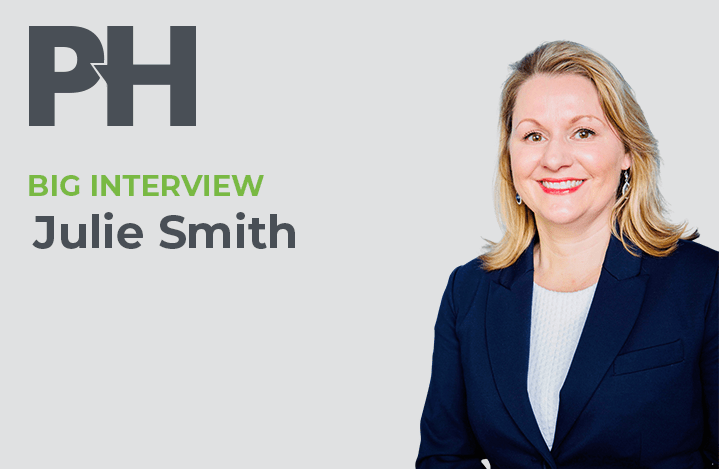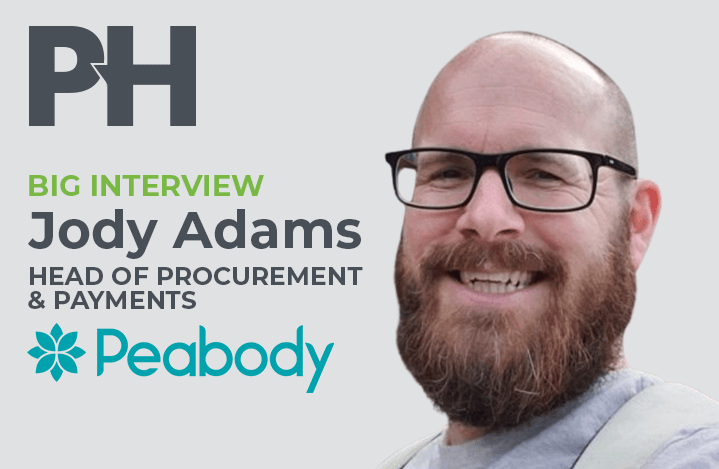Procurement Heads‘ Operations Director and ED&I champion Hayley Packham recently spoke with Julie about her procurement career how we can support women in procurement progress their careers.
How did you get into procurement?
I morphed into procurement as a profession, it started for me in the travel industry, where I was looking after the spend portfolio for about 20 clients when I worked for one of the big travel management companies.
That led me to be invited to work for two of my clients in their procurement department, which led me to work on all areas of indirects over the course of the last 20 years. It’s led me to move from Australia to Switzerland and now here in the UK. It’s been a nice mixture of industries, categories and countries that’s made it a really good journey so far.
What’s been your favourite career experience? What’s been the best company you’ve worked for?
I would say all of them have been fantastic, I’ve always enjoyed getting something out of each industry, whether that was financial services or FMCG, also, it’s about the people as well, the location, all of the different mixes.
Procurement people are the Jack and Jills of all trades, if I flip the coin on that, I’m always surprised how unknown and undervalued the function can be – and the misconception about it. We’re not the money police, we’re not the blockers and I really worked hard in my career to overturn these misconceptions.
I still laugh when I think back to a moment early on in my career when I went to meet a stakeholder, and not only had she not heard of the word procurement, she didn’t even know we were a department in the company. She called us the procedurement department and thought our job was looking after procedures. That was obviously very humorous to us as the team, and we called ourselves the procedurement team as a result.
How do you overcome those misconceptions and how do you get stakeholders to understand procurement’s value?
First of all it’s around understanding the stakeholder, for me, I’ve spent a lot of time getting under the skin of HR as a function, secondly, it’s really listening, listening to what the pain points and challenges are – what is it they are doing that is impacting the business objectives? It’s also important to spend time with them and explain what we do, how I can help you with the pain points, how I can impact the budget so you can get more for less, how I can help you achieve your priorities. It’s that mutual understanding, but it starts with really understanding your customer first.
Is it almost a proof of concept to show that value and concept and get that buy-in?
Absolutely, you start small, that’s something I’d always recommend. Get some wins on the board, win that credibility and then start expanding that scope so you can optimise what you can deliver to the business. Then it’s about shared success, telling the story of what you’ve done collaboratively with your stakeholders, and that’s another way to elevate the function.
You’ve worked in some very male-dominated environments during your time in procurement, as a woman, have you faced any barriers?
I wouldn’t say the barriers have been gender related, I would say it’s more about finding the right voice to have – and that takes time, and experiences, to see what works and doesn’t work.
You’ve done a lot of workshops for us recently and garnered a lot of experiences for women in the industry, do you have a view on how women are perceived across the profession at the moment?
Overall I think there’s a good representation of women, and I’m pleased to see that. In all of the roles I’ve had, I’ve seen more and more women coming through the ranks. The challenges you and I have seen is definitely at the senior level, and it would be ideal to see a far greater representation of women at the Director, CPO or very senior levels.
How can we support and encourage women to progress in their careers, and are there any prohibitors limiting them?
There’s definitely some common challenges that I see women facing and it’s often underpinned by a lack of confidence, and that’s something that can manifest itself as imposter syndrome, I think we can really support each other by being really transparent about that and sharing experience and talking to each other and I think it would be great to see leaders leading by example, around building their team’s confidence around imposter syndrome. Other thing that can he an inhibitor are being reluctant to give things a go. Sharing achievements more, I think it would be great to see more women step up and share their story, overcome the fear of sharing their story and gaining the skills to do it in an artful way that is going to enhance their confidence, personal brand and highlight what they bring to the business.
I think being able to do that will open up far more opportunities for you than you currently experience.
Hayley: The theme of imposter syndrome definitely came up in the webinars, what was interesting at the round table we held was that the senior leaders who attended shared that they too had experienced the same things. Sometimes there can be a misconception that those who are in the senior positions haven’t experienced the same challenges, when, in reality they absolutely have. It’s about how you overcome those, be it through champions, or mentors, to get some sage advice.
Julie: Absolutely – when I think about skills and attributes that are going to help women progress, I would say confidence would be the number one, and if you feel you’re lacking it, there are plenty of other women out there who can support you and give you the help you need.
Be open about it, I would also say it’s key to be a good listener and have a curious mind – it enables you to give things a go. I would also say to women, don’t be so hard on yourselves, be careful not to fall into that disease to please, don’t make it harder for yourself as you’ve already a lot going on.
Is there anything you think we can learn from our male counterparts?
I would say that there’s four really good lessons men approach opportunities compared to women, and I’m generalising here, so do take it as a generalisation.
The first is around claiming their achievements, I think that’s something women could really improve on.
The second is around networking and leveraging your network, women are great at building the relationship, but not necessarily as good at leveraging it, to help both themselves and others.
The third is around the disease to please, women say yes a lot and take on a lot, it would be good to see women say no more often, especially women in procurement, negotiate more and find the right balance so you are being true to yourselves but still delivering.
The fourth one is around the perfection trap, I think I cited the example of how people approach the job description, females will tend to only apply for jobs if they’ve 95-100% of the requirements, where men will apply if they’ve got 60-70%, that’s where I’d love to see women follow a similar principle and just give things a go.
Who has inspired you throughout your career?
I’ve networked with such an amazing group of people, that it’s not just one person in particular, but people I’ve met through my life that have been smart, pioneering in their entrepreneurial endeavors, very bold and caring people who bring their heart and soul to work.
I’ve found this increased dramatically when I started to live and work in different countries, and it’s one of the things I’ve loved the most, having this exposure to so many different and amazing people.
How can we encourage more women to choose procurement as a viable career option? What’s good about procurement and why should it be appealing?
It is starting at the grassroots level, showcasing what the profession can do, showcasing it at schools, colleges and universities and bringing that visibility so you can share it with people and all of the different aspects of the company you can be involved within.
I’d love to see more collaboration between companies, industry bodies, universities and recruitment firms to really share the great work procurement does and also be able to give people real life stories as to the variety and interesting things you can get out of it, the different companies and locations you can work and live in.
It gives you all of these great skills to do other things, be that running your own business or transferring skills to other functions, to having the chance to live and work around the world.
Procurement is a profession where there are fewer barriers to progression, so that needs to be encouraged as well.
I agree wholeheartedly, there are many ways you can get into the profession.
If you were starting out now, what advice would you give your younger self?
I would definitely tell myself to watch those assumptions and that there are always different perspectives, I’d also say to myself to take the time, stop, think and reflect.
I’d ask myself more often when am I happy, and what do I love to do?
These are such important questions to reflect upon throughout life, to check you are on the path you want to be on.
Work aside, what do you enjoy doing in your spare time?
I would say my real passion is photography, I love it because it captures moments in time and creates memories and is a recorder of happiness and beauty and covers the full spectrum of emotions.
Do you photograph any particular genre?
It’s really anything and everything, there’s always something interesting in the natural world but also people, landscapes and moments. I keep an open mind on what to take photos of.
What’s on your bucket list?
Diving with sharks is definitely on there!

Hayley: That’s my worst nightmare, I watched Jaws at an early age!
That movie has ruined it for sharks! Steven Spielberg needs to be running a Save the Shark campaign to make it up to that species!
A less crazy one for the bucket list is that I also really want to hot-air balloon.
If you could have a cleanse and delete all the apps off your phone, what apps would you keep?
That’s a great question – I would definitely keep Instagram, Whatsapp, so I could stay in touch with people, and importantly I would keep Google!






